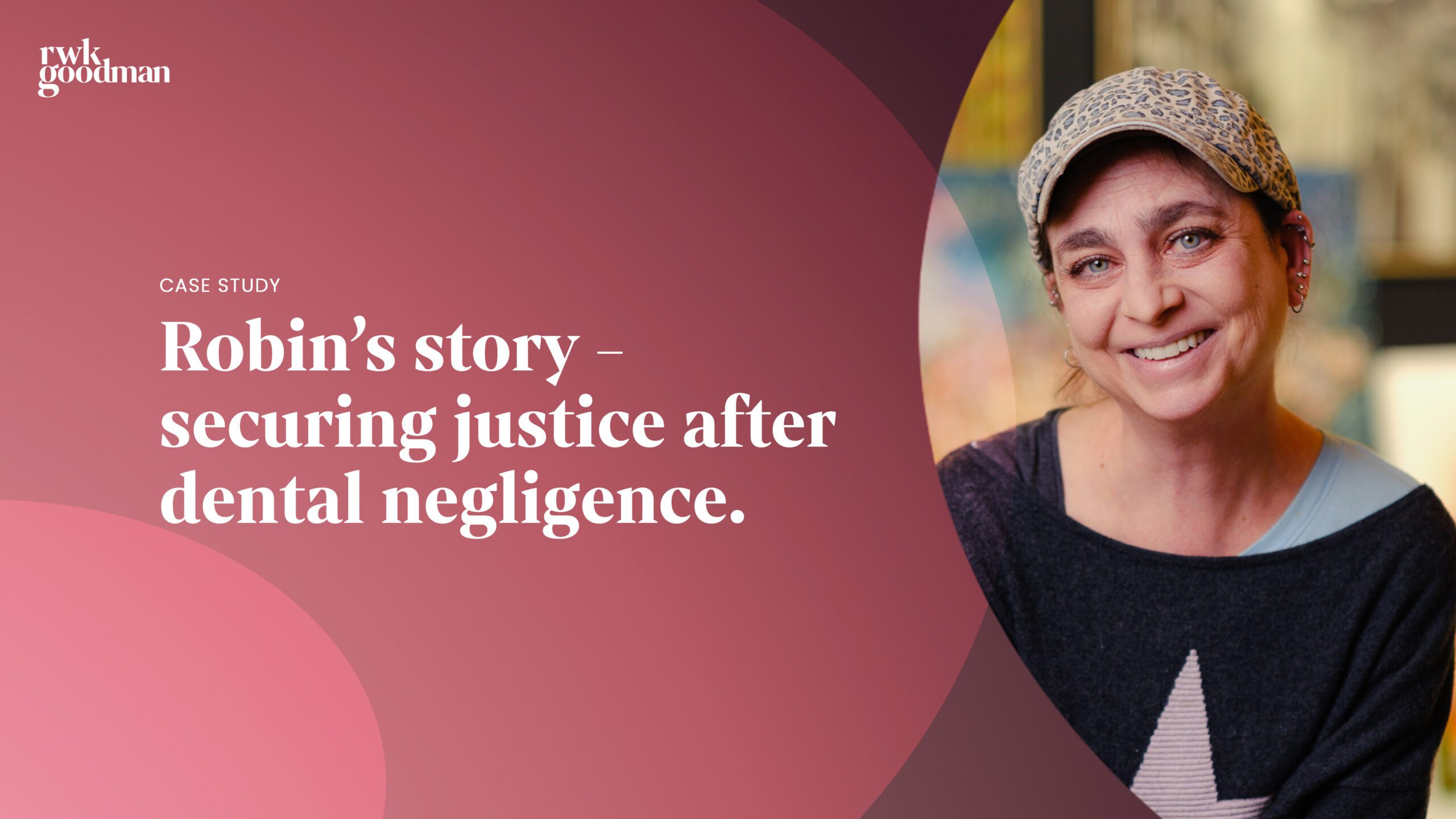Medical Negligence – Lessons learned: Anna’s story
Introduction
When Anna’s mother, Gill, was found to have low haemoglobin following a check-up with a district nurse, she was told she would be best to go to hospital and have a blood transfusion. According to the nurse, it would be a simple procedure and she would soon be back at home.
When assessed by a consultant at hospital, Gill was told she would need an endoscopy to confirm whether she had any internal bleeding. At 91 years of age, this was not an inconsequential procedure for Gill.
When Anna called to check up on her mother, she discovered that Gill had already been taken away for the endoscopy; something neither Anna nor her father had been made aware.
Endoscopy definition: A procedure where a small camera is used to look inside the body. In this case the camera was inserted through Gill’s mouth.
Unfortunately during the course of the endoscopy, an error occurred and Gill’s oesophagus was torn. The procedure was abandoned.
It was soon after that the symptoms of surgical emphysema became apparent. Anna’s father noticed that Gill’s face had gone blue and there was significant swelling around her chest and neck. He was told that some kind of trauma after an endoscopy was normal, and that this was nothing to worry about. As such, he was advised to go home and wait until the following day to return and see how Gill was getting on.
Gill’s condition sadly worsened and in the course of the night she died of heart failure as a consequence of the perforation and surgical emphysema
A failure to explain or apologise
When Anna spoke with her father after the death, it soon became apparent that what she’d been told about her mother’s death may was not the full story. In speaking to her father, she learned more about the worrying symptoms he’d seen and reported to the nurses. She became increasingly concerned that they were treating her father’s account of what he described from being at Gill’s side shortly before her death as something that had just been ‘made up’, something that she could not accept was in her father’s character.
After speaking with the coroner about her concerns, the Care Quality Commission (CQC) opened an investigation and eventually brought a criminal prosecution against the Trust for failing in their duty of candour. The Trust failed to share details of what happened to Gill prior to her death and they failed to apologise to her family within a reasonable timeframe. The Trust pleaded guilty and were fined – the first prosecution of its kind.
Seeking answers through the inquest process
Anna was keen to engage further with the inquest process to unearth the full facts, and to determine exactly what had gone wrong with her mother’s care.
Indeed, during the course of the inquest, medical notes were obtained which revealed that the Trust had understood more about Gill’s death than had previously been disclosed. An entry recorded in the medical records by a junior doctor said, ‘evidence of surgical emphysema is present’, corroborating the evidence given by Anna’s father.
Furthermore, the Trust did not appear to have investigated the consenting process for the endoscopy that had led to the death. The inquest process brought to light that there was significant discrepancy between clinicians on the consenting, and this cast doubt on whether proper consent had been provided by Gill for the procedure.
It also came to light that a simple test to check for signs of a torn oesophagus had not been performed by the staff at the Trust; something that would have led to quicker recognition of the injury and more timely treatment.
More generally, Anna raised concerns about record-keeping related to the incident – including a doctor involved in the treatment who had not been identified. Key information relating to Gill’s treatment and death simply hadn’t been written down.
Securing a Prevention of Future Deaths (PFD) Report
In light of the concerning evidence raised during the course of the inquest process, and following arguments submitted by our inquest team on behalf of Anna and her family, the coroner was compelled to write of a Prevention of Future Deaths Report.
This is a formal report where a coroner sets out concerns they have about issues which have the potential to cause further deaths if left unresolved. The recipient of a Prevention of Future Deaths Report is obliged to prepare a response setting out how they intend to address the concerns.
Bringing a claim for compensation
After the inquest Anna and her family decided to pursue compensation from the Trust for causing Gill’s death. As a great deal of evidence had been collated during the inquest process, it was possible to set out the allegations against the Trust very quickly after the inquest. The claim was settled swiftly and compensation was paid to Gill’s family, including for her pain and suffering and for funeral expenses.
For Anna and her family, this was never about the money. The compensation they were awarded was donated to AvMA; a charity dedicated to helping individuals and families find answers when they’ve been the victim of medical accidents.
The family saw the claim as a further means of holding the Trust to account for what happened, and to put their actions under even greater scrutiny.
Anna had this to say about the process:
“We were so much more comfortable having the PFD report at the end and being able to donate a small bit of money to a charity that would do some good for others in a similar position. And none of that would have happened without the representation we had”.
Call us now or use the form here to contact us and find out how we might be able to help you.
Call now

Here to ensure that lessons are learned
When harm is caused, either to yourself or a loved one, you want to know how it happened and to ensure it doesn’t happen to others.
Whether you’ve sustained an injury as a result of medical negligence, been involved in a life changing accident, or suffered the death of someone close to you, our legal experts understand how important it is to seek answers about what happened.
These stories show how our team seeks to identify issues in care and safety, and to ensure lessons are learned when things go wrong.
Related articles
From acquired brain injuries and dental negligence, to birth injuries and spinal injuries, our team of expert medical negligence solicitors have an exhaustive experience of medical negligence claims and compensation. Whatever you need to claim for, we know how best to go about it.
View more articles related to Medical negligence

